#Oracle Integration Cloud Services
Explore tagged Tumblr posts
Text
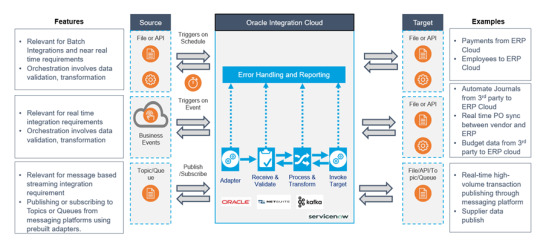
Jade Global's Oracle Integration Cloud Services Features
When businesses grow, the importance of system integration grows with it, and system integration improves the visibility of your business performance. Jade's Oracle Integration Cloud Services combines all the capabilities of Application Integration, Process Automation, Visual Application Building, and Integration Analytics into a unified cloud service. In this infographic explore the OIC features: https://shorturl.at/eAskR
1 note
·
View note
Text
Oracle Integration Cloud Services – Seamless Cloud Integration Solutions | IQ Stream Technologies
IQ Stream Technologies offers expert Oracle Integration Cloud services to streamline your business processes and enhance operational efficiency. Our tailored integration solutions connect applications, data, and systems, ensuring smooth data flow and improved decision-making. Leverage the power of Oracle Integration Cloud to drive seamless business transformation with IQ Stream Technologies.
0 notes
Text
The Top Choice: Oracle Enterprise Resource Planning Cloud Service for Your Business Success
Are you searching for the best solution to streamline your business operations? Look no further than the Top Choice: Oracle Enterprise Resource Planning (ERP) Cloud Service. In today's fast-paced business world, organizations need a robust ERP solution to optimize their processes, enhance productivity, and drive growth. Oracle ERP Cloud Service, crowned as the best in the industry, offers a comprehensive suite of tools designed to meet the demands of modern businesses.
Why Choose the Best: Oracle Enterprise Resource Planning Cloud Service?
Oracle ERP Cloud Service stands out as the Best Option for businesses across various industries. Here's why:
Scalability: Easily scale your ERP system as your business grows, always ensuring seamless operations.
Integration: Integrate ERP with other Oracle Cloud services for a unified business platform.
Real-time Insights: Gain valuable insights into your business with real-time analytics, enabling data-driven decision-making.
Security: Rest easy knowing your data is secure with Oracle's advanced security features.
Frequently Asked Questions about the Best Choice: Oracle ERP Cloud Service
Q1: What modules are included in Oracle ERP Cloud Service?
A1: Oracle ERP Cloud Service includes modules for financial management, procurement, project management, supply chain management, and more. Each module is designed to optimize specific aspects of your business.
Q2: Is Oracle ERP Cloud Service suitable for small businesses?
A2: Yes, Oracle ERP Cloud Service is scalable and can be tailored to meet the needs of small, medium, and large businesses. It offers flexible solutions suitable for businesses of all sizes.
Q3: How does Oracle ERP Cloud Service enhance collaboration among teams?
A3: Oracle ERP Cloud Service provides collaborative tools that enable teams to work together seamlessly. Features like shared calendars, document management, and task tracking enhance communication and collaboration.
Conclusion: Empower Your Business with the Best ERP Solution
Oracle Enterprise Resource Planning Cloud Service is not just a choice; it's the Ultimate Solution for businesses seeking to optimize their operations. By harnessing the power of Oracle ERP, you can streamline processes, improve efficiency, and drive innovation. Don't let outdated systems hold your business back. Embrace the future with Oracle ERP Cloud Service and propel your business to new heights.
Ready to transform your business? Contact us today to explore the endless possibilities with the best ERP solution on the market.
#oracle#oracle erp#rapidflow#oracle erp cloud service#best erp solution#oracle erp service providers#business#business automation#oracle services#enterprise software#scalability#integration#rpa#market#erp
3 notes
·
View notes
Text
Oracle Fusion Integration Cloud Services Online Training and Certification | CloudShine

CloudShine offers oracle integration cloud certification and online training courses which help you enhance your knowledge in developing REST API, Webservice and other complex integration menthods. Request a free demo!
0 notes
Text
Optimizing Oracle Cloud Integration with Test Automation
Modern corporations that want to smooth out their IT operations and improve their business procedures must use Oracle Cloud Integration. With Oracle Cloud Integration, organizations can ensure the connection of different applications, services or data sources to form one effective and consolidated system. So, this integration maintains the smooth flow of data and real-time information exchange on…
#automation tools#cloud services#efficiency improvements#integration testing#oracle cloud#oracle cloud integration#Performance Testing#Quality Assurance#test automation
0 notes
Text
Navigating the Cloud Journey: Unveiling Oracle Cloud Consulting Services
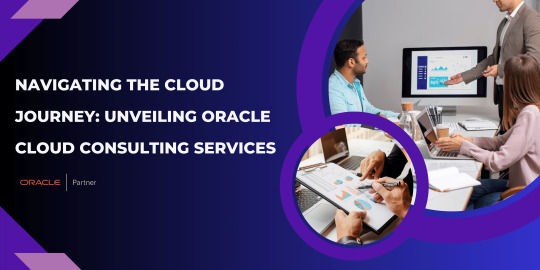
Businesses are increasingly turning to cloud solutions to stay competitive and agile. Among the many cloud service providers, Oracle Cloud stands out for its comprehensive suite of services that cater to a wide range of business needs. However, navigating the complexities of cloud migration and management can be daunting. This is where Oracle Cloud consulting services come into play, offering expert guidance and tailored solutions to ensure a smooth and successful cloud journey. Grey Space Computing is at the forefront of providing these services, helping businesses optimize their infrastructure and maximize the benefits of cloud technology.
Understanding Oracle Cloud
Oracle Cloud is a robust cloud computing platform that provides a range of infrastructure (IaaS), platform (PaaS), and software (SaaS) services. It is designed to help businesses manage their data, applications, and workloads efficiently and securely. Oracle Cloud offers unparalleled scalability, security, and performance, making it an ideal choice for organizations of all sizes.
The Importance of Cloud Consulting Services
Moving to the cloud is not just about adopting new technology; it involves a significant transformation in how businesses operate. Cloud consulting services play a critical role in this transformation by:
Providing Expertise: Cloud consultants bring deep expertise and experience in cloud technologies, helping businesses make informed decisions.
Ensuring Smooth Migration: They ensure a seamless transition to the cloud, minimizing downtime and disruptions.
Optimizing Resources: Consultants help optimize cloud resources, ensuring cost-efficiency and improved performance.
Enhancing Security: They implement robust security measures to protect data and applications in the cloud.
Driving Innovation: By leveraging the latest cloud technologies, consultants help businesses innovate and stay ahead of the competition.
Why Choose Oracle Cloud?
Oracle Cloud offers several advantages that make it a preferred choice for businesses:
Comprehensive Solutions: Oracle Cloud provides a complete suite of cloud services, including IaaS, PaaS, and SaaS, catering to diverse business needs.
High Performance: It delivers high-performance computing capabilities, ensuring fast and reliable access to data and applications.
Scalability: Oracle Cloud can scale up or down based on business requirements, providing flexibility and cost savings.
Security: With advanced security features, Oracle Cloud ensures data protection and compliance with industry regulations.
Innovation: Oracle continuously innovates its cloud offerings, incorporating the latest technologies to drive business growth.
The Role of Grey Space Computing in Oracle Cloud Consulting
Grey Space Computing specializes in Oracle Cloud consulting services, guiding businesses through their cloud journey with expertise and precision. Here’s how they add value to your cloud transformation:
1. Assessment and Strategy Development
Before embarking on the cloud journey, it is crucial to assess the current IT infrastructure and develop a clear strategy. Grey Space Computing conducts a thorough assessment of your existing systems, identifying potential challenges and opportunities. They then develop a customized cloud strategy that aligns with your business goals and objectives.
2. Cloud Migration
Migrating to the cloud can be complex and challenging. Grey Space Computing simplifies this process by managing the end-to-end migration, ensuring minimal disruption to your operations. They use best practices and advanced tools to migrate your data, applications, and workloads seamlessly to Oracle Cloud.
3. Optimization and Management
Once the migration is complete, it is essential to optimize and manage the cloud environment to maximize its benefits. Grey Space Computing provides ongoing management and optimization services, ensuring that your cloud infrastructure operates at peak performance. They monitor and analyze your cloud resources, implementing improvements as needed to enhance efficiency and cost-effectiveness.
4. Security and Compliance
Security is a top priority in the cloud. Grey Space Computing implements robust security measures to protect your data and applications from threats. They ensure compliance with industry regulations, providing peace of mind that your cloud environment is secure and compliant.
5. Support and Training
Adopting new technology can be challenging for employees. Grey Space Computing offers comprehensive support and training services to help your team get up to speed with Oracle Cloud. They provide ongoing support to address any issues and ensure a smooth and successful cloud journey.
Key Benefits of Oracle Cloud Consulting Services
Partnering with Grey Space Computing for Oracle Cloud consulting services offers several key benefits:
Expert Guidance: Access to a team of experienced cloud consultants who provide expert guidance and support.
Customized Solutions: Tailored solutions that meet your specific business needs and objectives.
Seamless Migration: A smooth and efficient migration process with minimal downtime and disruptions.
Cost Savings: Optimization of cloud resources to ensure cost-efficiency and reduce operational expenses.
Enhanced Security: Implementation of advanced security measures to protect your data and applications.
Improved Performance: Continuous monitoring and optimization of your cloud environment to ensure peak performance.
Case Studies: Success Stories with Grey Space Computing
Many businesses have successfully transformed their operations with the help of Grey Space Computing’s Oracle Cloud consulting services. Here are a few examples:
1. Retail Industry
A leading retail company faced challenges with their on-premises IT infrastructure, including high maintenance costs and limited scalability. Grey Space Computing conducted a thorough assessment and developed a cloud migration strategy that aligned with the company’s business goals. They successfully migrated the company’s data and applications to Oracle Cloud, resulting in improved performance, reduced costs, and enhanced scalability.
2. Healthcare Sector
A healthcare organization needs to ensure compliance with strict data security regulations while optimizing its IT infrastructure. Grey Space Computing implemented Oracle Cloud solutions that provided robust security features and ensured compliance with industry regulations. The organization achieved greater efficiency and improved data protection, enhancing its overall operations.
3. Financial Services
A financial services firm sought to enhance its data analytics capabilities to drive better decision-making. Grey Space Computing integrated Oracle Cloud’s advanced analytics tools, enabling the firm to gain deeper insights into its data. This resulted in improved decision-making, enhanced customer experiences, and increased competitiveness in the market.
Future Trends in Cloud Computing
The cloud computing landscape is continuously evolving, with new trends and technologies shaping the future. include:
Artificial Intelligence and Machine Learning: These technologies are being integrated into cloud services to provide advanced analytics, automation, and improved decision-making.
Edge Computing: This involves processing data closer to the source, reducing latency and improving performance.
Serverless Computing: This model allows businesses to focus on application development without worrying about infrastructure management.
Blockchain: Blockchain technology is being used to enhance security and transparency in cloud transactions.
Hybrid and Multi-Cloud: Businesses are increasingly adopting hybrid and multi-cloud strategies to leverage the benefits of multiple cloud providers.
Conclusion
Navigating the cloud journey can be challenging, but with the right partner, it can be a transformative experience. Grey Space Computing offers expert Oracle Cloud consulting services that guide businesses through every step of their cloud journey. From assessment and strategy development to migration, optimization, and ongoing support, they provide comprehensive solutions that maximize the benefits of Oracle Cloud. By partnering with Grey Space Computing, businesses can achieve greater efficiency, cost savings, and innovation, staying ahead in the competitive digital landscape.
FAQs
Q1: What is Oracle Cloud?
Oracle Cloud is a comprehensive cloud computing platform that offers infrastructure, platform, and software services to help businesses manage their data, applications, and workloads efficiently.
Q2: Why do I need Oracle Cloud consulting services?
Oracle Cloud consulting services provide expert guidance, ensuring a smooth migration to the cloud, optimizing resources, enhancing security, and driving innovation.
Q3: How does Grey Space Computing assist with cloud migration?
Grey Space Computing manages the end-to-end cloud migration process, ensuring minimal disruption to your operations and a seamless transition to Oracle Cloud.
Q4: What are the benefits of partnering with Grey Space Computing?
Partnering with Grey Space Computing offers expert guidance, customized solutions, seamless migration, cost savings, enhanced security, and improved performance.
Q5: What future trends should I watch in cloud computing?
Key trends in cloud computing include AI and machine learning, edge computing, serverless computing, blockchain, and hybrid and multi-cloud strategies.r sit amet, consectetur adipiscing elit. Ut elit tellus, luctus nec ullamcorper mattis, pulvinar dapibus leo.
#Benefits of Oracle Cloud Consulting#Oracle Cloud Consulting Services#Cloud Journey with Oracle Consulting#Optimize Infrastructure with Oracle Cloud#Oracle Cloud for Business Efficiency#Expert Oracle Cloud Consultants#Comprehensive Oracle Cloud Solutions#Maximizing Oracle Cloud Benefits#Oracle Cloud Integration Strategies#Oracle Cloud Migration Services#Oracle Cloud Optimization Techniques#Cost-Efficiency with Oracle Cloud#Oracle Cloud Consulting Expertise#Transform Your Business with Oracle Cloud#Oracle Cloud Implementation Services
1 note
·
View note
Text
Loading Data to Entities in TRCS using Data Integration
View On WordPress
0 notes
Text
GothamNAV
You know what would be cool in Gotham? A specialized navigation software/app that takes into acount what is going on in the city. Imagine Google Maps but with rogue updates.
- Take the next right onto 5th street to avoid joker toxin on Park Row. - The drive time increases by five minutes due to an explosion on 14th Street. - This route requires a gas mask for safe travel. - Riddler was sighted along your route. Do you want to adjust to avoid this encounter?
I imagine there is en extensive settings menu.
Avoid Rogues (ON/OFF) Avoid Bats (ON/OFF) Avoid Police (ON/OFF) Avoid Gas releases (ON/OFF) (we recommend to enable this function if your gas mask is damaged) Accessible Routes only (ON/OFF) Gang Territory Overlay (ON/OFF) Avoid Territory of ( ) Red Hood ( ) Black Mask ( ) [...]
And when you ask it to navigate you somewhere, you get *Options*.
- safest route (avoid rogue activity, vigilantes, police and environmental hazards) - fastest route (possibly dangerous paths that get you to your destination quickly) - scenic route (leads through the proximity of active events while keeping some distance)
I imagine they work with the police and the bats (mainly Oracle, obviously), because that way they also keep civilians out of the way.
I think they would start as a project from some computer sciences students from Gotham University that get annoyed about always having to listen to their navigation going "please go straight ahead" when they can see the fear toxin clouding that street, but over time they make it into a full on service. It's free, they get funding from Wayne Enterprises so that its available for everyone. They figure out ways to make it more accessible for different disabilities, improve the integration of the public transport system and even integrate a feature to directly navigate everyone to shelters if some major catastrophe hits. Everyone in Gotham uses it, so if you see a stray car driving down a street everyone else is avoiding, they are surely from out of town.
9 notes
·
View notes
Text

Jade Global's Oracle Integration Cloud Services Architecture
When businesses grow, the importance of system integration grows with it, and system integration improves the visibility of your business performance. Jade's Oracle Integration Cloud Services combines all the capabilities of Application Integration, Process Automation, Visual Application Building, and Integration Analytics into a unified cloud service. Explore the OIC architecture: https://shorturl.at/eAskR
1 note
·
View note
Text
Oracle Fusion Services in the UAE: Transforming Business Operations
The rapid advancement of technology is reshaping business operations across the globe, and the UAE is no exception. As one of the leading business hubs in the Middle East, the UAE has seen significant adoption of cutting-edge solutions to streamline business processes, enhance efficiency, and drive innovation. Among these solutions, Oracle Fusion Services have emerged as a critical enabler for digital transformation across various industries in the region.
What is Oracle Fusion?
Oracle Fusion is a suite of cloud applications designed to provide comprehensive, integrated solutions for enterprise resource planning (ERP), customer relationship management (CRM), human capital management (HCM), supply chain management (SCM), and more. Built on Oracle’s powerful cloud infrastructure, Fusion Applications offer scalable, flexible, and secure solutions that help organizations optimize their operations while adapting to rapidly changing market conditions.
The Growing Demand for Oracle Fusion in the UAE
In the Oracle Fusion service in UAE, businesses are increasingly recognizing the need for agile and future-proof solutions to maintain competitiveness. Oracle Fusion’s cloud-based architecture makes it an ideal choice for organizations looking to modernize their IT infrastructure without the burden of maintaining costly on-premise systems. By leveraging Oracle Fusion, companies can streamline their core business functions, reduce operational costs, and improve decision-making through real-time data analytics.
One of the major drivers for the adoption of Oracle Fusion in the UAE is the government’s focus on digital transformation, which is aligned with the UAE Vision 2030. This vision aims to diversify the economy, reduce reliance on oil, and create a knowledge-based economy. As part of this vision, businesses in the UAE are under pressure to adopt advanced technologies that enable them to operate more efficiently and sustainably.
Key Benefits of Oracle Fusion Services in the UAE
Scalability and Flexibility: Oracle Fusion allows businesses to scale their operations quickly and efficiently as they grow. Whether you are a small business or a large enterprise, the system can be tailored to meet your specific needs.
Enhanced Security: Data security is a top priority for businesses in the UAE, and Oracle Fusion offers advanced security features to protect sensitive information. With built-in compliance and encryption measures, businesses can rest assured that their data is safe.
Real-time Insights: One of the standout features of Oracle Fusion is its ability to provide real-time data insights. This helps businesses make informed decisions, forecast trends, and improve overall efficiency.
Improved Collaboration: Oracle Fusion’s unified platform fosters better collaboration among teams, departments, and even across different locations, which is essential for multinational companies operating in the UAE.
Conclusion
Oracle Fusion Services are playing a pivotal role in transforming the business landscape in the UAE. By offering a suite of flexible, secure, and scalable cloud applications, Oracle Fusion is helping organizations embrace digital transformation, streamline their operations, and stay competitive in a rapidly evolving market. As the UAE continues its journey toward becoming a global leader in innovation and technology, Oracle Fusion is well-positioned to support this vision.
2 notes
·
View notes
Text
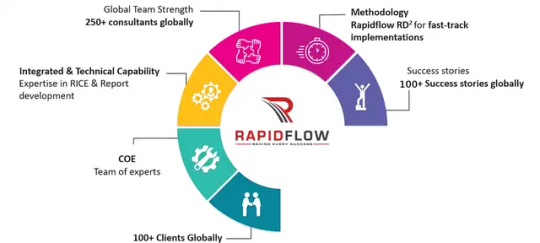
#oracle#oracle services#oracle erp service providers#oracle cloud services#business automation services#robotic process automation#oracle integration cloud#oracle ebs#rapidflow#oracle cloud#ezintegrations#advanced supply chain planning#oracle solutions#oracle partners#best oracle services providers
1 note
·
View note
Text
Valkey 7.2 On Memorystore: Open-Source Key-Value Service
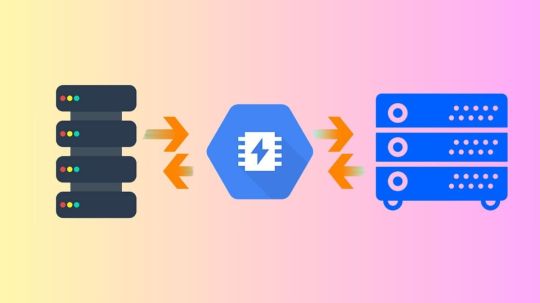
The 100% open-source key-value service Memorystore for Valkey is launched by Google Cloud.
In order to give users a high-performance, genuinely open-source key-value service, the Memorystore team is happy to announce the preview launch of Valkey 7.2 support for Memorystore.
Memorystore for Valkey
A completely managed Valkey Cluster service for Google Cloud is called Memorystore for Valkey. By utilizing the highly scalable, reliable, and secure Valkey service, Google Cloud applications may achieve exceptional performance without having to worry about handling intricate Valkey deployments.
In order to guarantee high availability, Memorystore for Valkey distributes (or “shards”) your data among the primary nodes and duplicates it among the optional replica nodes. Because Valkey performance is greater on many smaller nodes rather than fewer bigger nodes, the horizontally scalable architecture outperforms the vertically scalable architecture in terms of performance.
Memorystore for Valkey is a game-changer for enterprises looking for high-performance data management solutions reliant on 100% open source software. It was added to the Memorystore portfolio in response to customer demand, along with Memorystore for Redis Cluster and Memorystore for Redis. From the console or gcloud, users can now quickly and simply construct a fully-managed Valkey Cluster, which they can then scale up or down to suit the demands of their workloads.
Thanks to its outstanding performance, scalability, and flexibility, Valkey has quickly gained popularity as an open-source key-value datastore. Valkey 7.2 provides Google Cloud users with a genuinely open source solution via the Linux Foundation. It is fully compatible with Redis 7.2 and the most widely used Redis clients, including Jedis, redis-py, node-redis, and go-redis.
Valkey is already being used by customers to replace their key-value software, and it is being used for common use cases such as caching, session management, real-time analytics, and many more.
Customers may enjoy a nearly comparable (and code-compatible) Valkey Cluster experience with Memorystore for Valkey, which launches with all the GA capabilities of Memorystore for Redis Cluster. Similar to Memorystore for Redis Cluster, Memorystore for Valkey provides RDB and AOF persistence, zero-downtime scaling in and out, single- or multi-zone clusters, instantaneous integrations with Google Cloud, extremely low and dependable performance, and much more. Instances up to 14.5 TB are also available.
Memorystore for Valkey, Memorystore for Redis Cluster, and Memorystore for Redis have an exciting roadmap of features and capabilities.
The momentum of Valkey
Just days after Redis Inc. withdrew the Redis open-source license, the open-source community launched Valkey in collaboration with the Linux Foundation in March 2024 (1, 2, 3). Since then, they have had the pleasure of working with developers and businesses worldwide to propel Valkey into the forefront of key-value data stores and establish it as a premier open source software (OSS) project. Google Cloud is excited to participate in this community launch with partners and industry experts like Snap, Ericsson, AWS, Verizon, Alibaba Cloud, Aiven, Chainguard, Heroku, Huawei, Oracle, Percona, Ampere, AlmaLinux OS Foundation, DigitalOcean, Broadcom, Memurai, Instaclustr from NetApp, and numerous others. They fervently support open source software.
The Valkey community has grown into a thriving group committed to developing Valkey the greatest open source key-value service available thanks to the support of thousands of enthusiastic developers and the former core OSS Redis maintainers who were not hired by Redis Inc.
With more than 100 million unique active users each month, Mercado Libre is the biggest finance, logistics, and e-commerce company in Latin America. Diego Delgado discusses Valkey with Mercado Libre as a Software Senior Expert:
At Mercado Libre, Google Cloud need to handle billions of requests per minute with minimal latency, which makes caching solutions essential. Google Cloud especially thrilled about the cutting-edge possibilities that Valkey offers. They have excited to investigate its fresh features and add to this open-source endeavor.”
The finest is still to come
By releasing Memorystore for Valkey 7.2, Memorystore offers more than only Redis Cluster, Redis, and Memcached. And Google Cloud is even more eager about Valkey 8.0’s revolutionary features. Major improvements in five important areas performance, reliability, replication, observability, and efficiency were introduced by the community in the first release candidate of Valkey 8.0. With a single click or command, users will be able to accept Valkey 7.2 and later upgrade to Valkey 8.0. Additionally, Valkey 8.0 is compatible with Redis 7.2, exactly like Valkey 7.2 was, guaranteeing a seamless transition for users.
The performance improvements in Valkey 8.0 are possibly the most intriguing ones. Asynchronous I/O threading allows commands to be processed in parallel, which can lead to multi-core nodes working at a rate that is more than twice as fast as Redis 7.2. From a reliability perspective, a number of improvements provided by Google, such as replicating slot migration states, guaranteeing automatic failover for empty shards, and ensuring slot state recovery is handled, significantly increase the dependability of Cluster scaling operations. The anticipation for Valkey 8.0 is already fueling the demand for Valkey 7.2 on Memorystore, with a plethora of further advancements across several dimensions (release notes).
Similar to how Redis previously expanded capability through modules with restricted licensing, the community is also speeding up the development of Valkey’s capabilities through open-source additions that complement and extend Valkey’s functionality. The capabilities covered by recently published RFCs (“Request for Comments”) include vector search for extremely high performance vector similarly search, JSON for native JSON support, and BloomFilters for high performance and space-efficient probabilistic filters.
Former vice president of Gartner and principal analyst of SanjMo Sanjeev Mohan offers his viewpoint:
The advancement of community-led initiatives to offer feature-rich, open-source database substitutes depends on Valkey. Another illustration of Google’s commitment to offering really open and accessible solutions for customers is the introduction of Valkey support in Memorystore. In addition to helping developers looking for flexibility, their contributions to Valkey also support the larger open-source ecosystem.
It seems obvious that Valkey is going to be a game-changer in the high-performance data management area with all of the innovation in Valkey 8.0, as well as the open-source improvements like vector search and JSON, and for client libraries.
Valkey is the secret to an OSS future
Take a look at Memorystore for Valkey right now, and use the UI console or a straightforward gcloud command to establish your first cluster. Benefit from OSS Redis compatibility to simply port over your apps and scale in or out without any downtime.
Read more on govindhtech.com
#Valkey72#Memorystore#OpenSourceKey#stillcome#GoogleCloud#MemorystoreforRedisCluster#opensource#Valkey80#vectorsearch#OSSfuture#momentum#technology#technews#news#govindhtech
2 notes
·
View notes
Text
Oracle Fusion Integration Cloud Services Online Training and Certification | CloudShine

CloudShine offers oracle integration cloud certification and online training courses which help you enhance your knowledge in developing REST API, Webservice and other complex integration menthods. Request a free demo!
https://cloudshinepro.com/oracle-fusion-integration-cloud-services-training/
0 notes
Text
Oracle Applications Cloud Finance: Boost Your Financial Efficiency
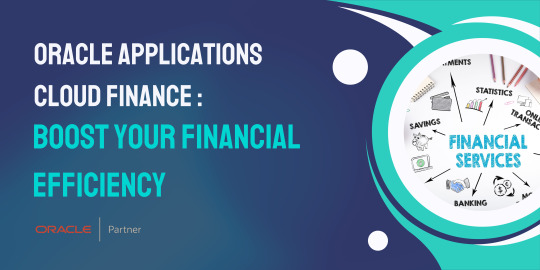
1. How Oracle Applications Cloud Can Help When It Comes to Finance?
In business technology, cloud computing stands out as a game-changer. Businesses seeking efficiency, scalability, and innovation are increasingly turning to cloud solutions. This article explores how Grey Space Computing leverages Oracle Cloud to provide cutting-edge services that drive business growth and operational excellence.
2. Overview of Grey Space Computing
Grey Space Computing specializes in providing tailored cloud solutions to businesses worldwide. With a focus on Oracle Cloud applications, they help organizations streamline their operations, improve efficiency, and foster innovation. Their team of experts brings a wealth of experience and a commitment to delivering top-notch services.
3. Importance of Cloud Solutions in Modern Business
Cloud solutions have revolutionized how businesses operate. They offer scalability, flexibility, and cost-efficiency, allowing companies to focus on their core competencies while leveraging advanced technologies. Cloud solutions also facilitate remote work, enhance collaboration, and ensure data security, making them indispensable in today’s business environment.
4. Key Services Offered by Grey Space Computing
4.1. Oracle ERP Cloud Implementation
Oracle ERP Cloud provides a comprehensive suite of applications for financial management, procurement, project management, and more. Grey Space Computing ensures seamless implementation, helping businesses automate processes, gain real-time insights, and improve decision-making.
4.2. Oracle HCM Cloud Integration
Human Capital Management (HCM) is crucial for managing a company’s workforce. Grey Space Computing integrates Oracle HCM Cloud to streamline HR processes, from recruitment and onboarding to performance management and payroll, enhancing employee experience and operational efficiency.
4.3. Oracle SCM Cloud Solutions
Supply Chain Management (SCM) is vital for maintaining smooth operations. Grey Space Computing’s Oracle SCM Cloud solutions help businesses manage their supply chains more effectively, improving visibility, optimizing inventory, and ensuring timely delivery of products and services.
4.4. Oracle EPM/PBCS Implementations
Enterprise Performance Management (EPM) and Planning and Budgeting Cloud Services (PBCS) are essential for strategic planning and financial management. Grey Space Computing implements these solutions to help businesses plan, budget, and forecast with precision, driving better financial performance.
4.5. Oracle Cloud Integration Services
Integrating various cloud applications can be challenging. Grey Space Computing provides expert integration services, ensuring that all Oracle Cloud applications work seamlessly together. This integration enhances data flow, improves efficiency, and provides a unified view of business operations.
5. Benefits of Partnering with Grey Space Computing
5.1. Expertise and Experience
With years of experience in cloud computing and Oracle solutions, Grey Space Computing brings unmatched expertise to the table. Their team of certified professionals ensures that clients receive the best solutions tailored to their needs.
5.2. Customized Solutions
Every business is unique, and so are its needs. Grey Space Computing provides customized solutions that align with the specific goals and requirements of each client, ensuring maximum impact and efficiency.
5.3. Comprehensive Support and Training
Implementing new technology can be daunting. Grey Space Computing offers comprehensive support and training to ensure smooth transitions and empower clients to make the most of their Oracle Cloud solutions.
6. Case Studies and Success Stories
Numerous businesses have transformed their operations with the help of Grey Space Computing. From streamlining financial processes to enhancing supply chain efficiency, these success stories highlight the tangible benefits of adopting Oracle Cloud solutions.
7. Future Trends in Cloud Computing and Grey Space Computing's Role
The future of cloud computing is bright, with advancements in AI, machine learning, and blockchain poised to drive further innovation. Grey Space Computing stays ahead of these trends, continuously evolving its offerings to ensure clients remain at the forefront of technology.
8. How to Get Started with Grey Space Computing
Starting your journey with Grey Space Computing is simple. Contact their team for a consultation to discuss your business needs and explore how their Oracle Cloud solutions can drive your success.
9. Conclusion
Grey Space Computing is a leader in providing Oracle Cloud solutions that enhance business operations and drive growth. With their expertise, customized solutions, and comprehensive support, they help businesses unlock the full potential of cloud computing. Partner with Grey Space Computing to stay ahead in the digital age.
10. FAQs
Q1: What is Grey Space Computing?
Grey Space Computing is a company specializing in Oracle Cloud solutions, offering services like ERP implementation, HCM integration, SCM solutions, and more.
Q2: How can Oracle ERP Cloud benefit my business?
Oracle ERP Cloud automates financial processes, provides real-time insights, and improves decision-making, enhancing overall operational efficiency.
Q3: Why is Oracle HCM Cloud important for HR management?
Oracle HCM Cloud streamlines HR processes, improves employee experience, and ensures efficient management of the workforce from recruitment to payroll.
Q4: What support does Grey Space Computing offer during implementation?
They provide comprehensive support and training to ensure a smooth transition and help clients maximize the benefits of their Oracle Cloud solutions.
Q5: How can I get started with Grey Space Computing?
Contact their team for a consultation to discuss your business needs and explore how their Oracle Cloud solutions can drive your success.
#Oracle Applications Cloud finance solutions#How Oracle Cloud helps finance teams#Benefits of Oracle Cloud for financial efficiency#Streamlining financial processes with Oracle Cloud#Oracle ERP Cloud for financial management#Oracle Cloud financial integration services#Financial planning with Oracle Cloud EPM#Boosting financial productivity with Oracle Cloud#Oracle Cloud financial management features#Enhancing financial operations with Oracle Cloud#Oracle Cloud financial data security#Oracle Cloud solutions for finance departments#Cost efficiency with Oracle Cloud finance solutions#Financial analytics with Oracle Applications Cloud#Oracle Cloud services for financial scalability
1 note
·
View note